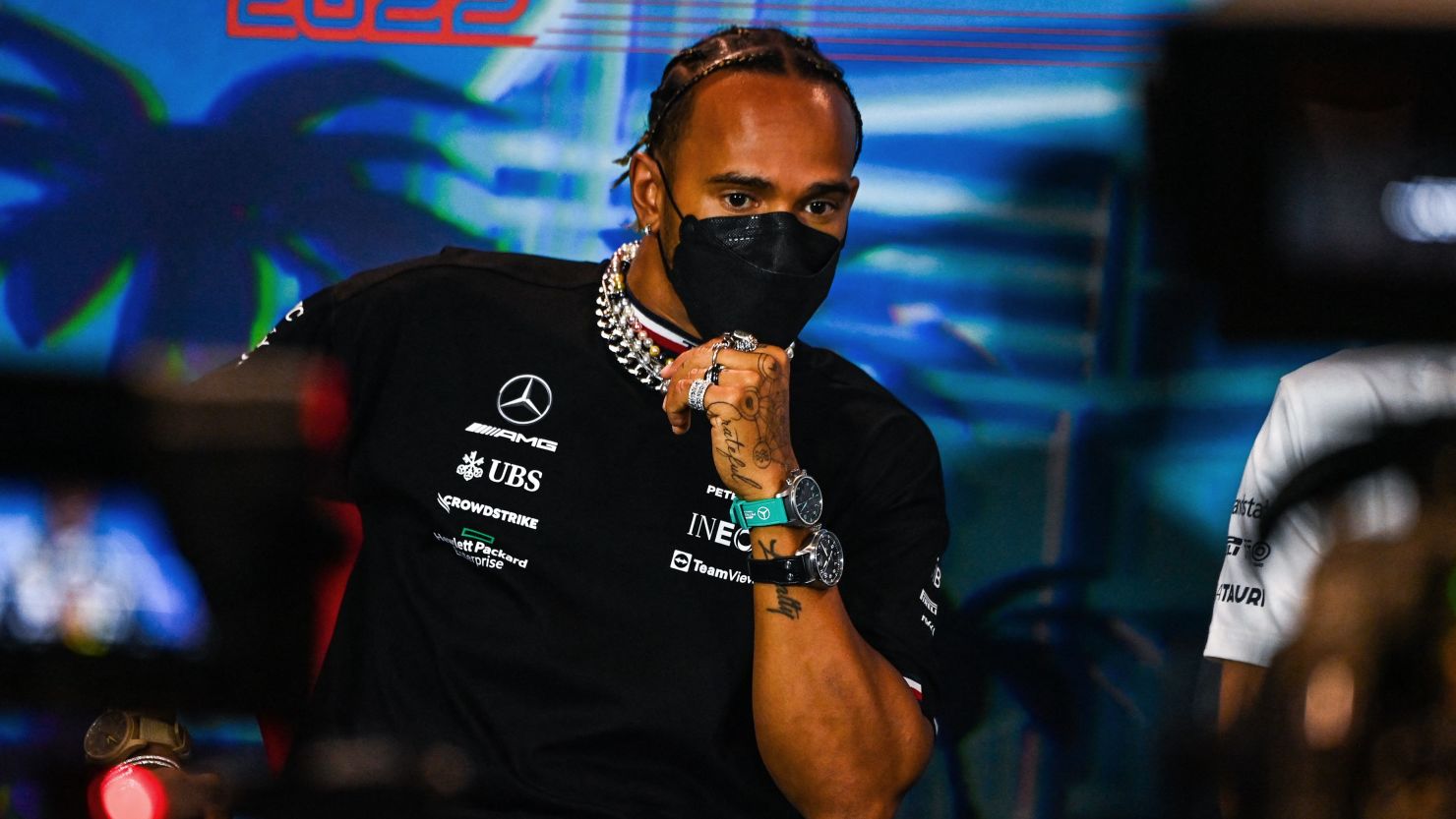Formula One is right to ban jewelry from the cockpit but the governing FIA could have enforced the rule in a less confrontational way, according to Grand Prix Drivers’ Association (GPDA) chairman Alex Wurz.
Seven-time world champion Lewis Hamilton and the FIA were in a standoff at this month’s Miami Grand Prix over piercings the Mercedes driver has raced with for years and said he could not remove.
Hamilton has been told to take them out by the Monaco Grand Prix on May 29 but has said he has no intention of doing so.
“It is a rule for the right reasons,” former Benetton, McLaren and Williams driver Wurz, who is heavily involved in driver safety and education, told Reuters.
“I would have probably liked a slightly different approach of how to deliver the message.
“I don’t want to end up in football where there are more hands in the air and verbal abuse…you have to work together. It’s a style I would have preferred in this case.”
The ban on jewelry, as well as the wearing of non-compliant under-garments, has long been in the rules but rarely enforced until the FIA clamped down this season.
It says items beneath the mandatory flameproof clothing could increase the risk of burn injuries and has highlighted the risk of critical delays or complications if medical imaging is required following an accident.
FIA president Mohammed Ben Sulayem told the Daily Mail last week he wanted Hamilton to send the right message to young drivers as a role model.
Wurz said he had never forgotten a talk he attended as a youngster given by Danish former racer Kris Nissen, who had a fiery sportscar crash at Japan’s Fuji circuit in 1988.
“He showed his body and said ‘look at this’,” recalled the 48-year-old.
“For him the absolute most painful thing after fire, and it wasn’t a long fire, was the rubber (elastic) in his normal pants being burnt into the skin. He said (it was) for years agony and pain. And it educated me.
“At this moment I said I don’t want to live these consequences, only for (not) taking my pants off and putting fireproof underpants on. The same with jewelry.”
Miami advice
Wurz said the GPDA was talking to the FIA about the body’s refusal in Miami to shield a concrete wall with an energy-absorbing Tecpro barrier after Alpine’s Esteban Ocon and Ferrari’s Carlos Sainz crashed heavily.
Several drivers accused the FIA of ignoring their concerns, although the body said it had listened to their advice but decided no changes were needed.
Wurz said hitting a concrete wall, even in a second gear corner, was going to hurt.
A Tecpro barrier could almost halve the G forces, he added, and mean a driver would not need medical checks and the chassis and gearbox would remain intact.
That would save money, with teams subject to budget caps, and remove the need to fly a damaged chassis back to Europe, adding to the carbon footprint.
Wurz said the GPDA had been told a barrier was available and could have been installed.
“Strictly speaking we didn’t have an injury, so maybe you can say it (the barrier) is not necessary but we want to say that if we had it, it would improve the situation,” he added.
“No research in the world can tell me it would have been a downside to put it (there).”
